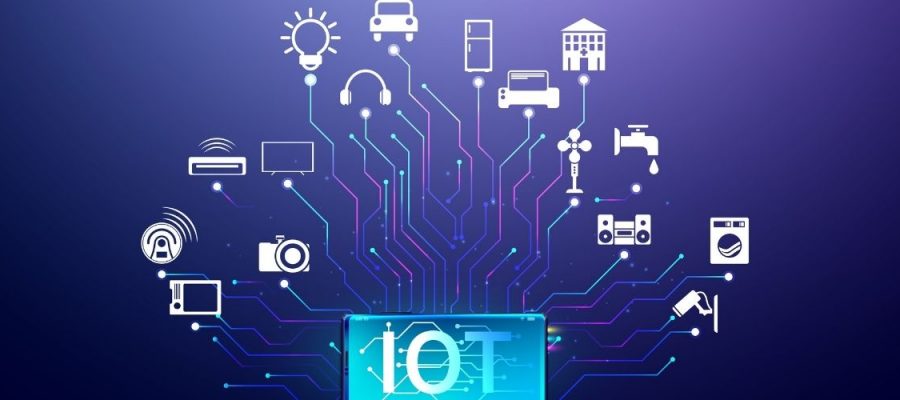
The binder and at the heart of any IoT solution
IoT platform – definition and features
The IoT platform is a generic layer that is built which vendors of IoT solutions build so that this a common layer above the application layer is built which changes with the use case and solution. It becomes easier to build new solutions on top of it and avoid the underlying complexity.
Features of IoT platform
- The IoT platform helps connect with the devices and sensors.
- It handles different communication protocols between all the components.
- It takes care of managing security.
- It also handles the storage of large quantities of disparate data.
Thus it acts both as a channel and integrations layer for the low-level components.
What are the different types of IoT platforms? How is the platform market?
Typically there are four types of IoT platforms:
End to End IoT Platforms
These types of platforms handle all the 9 yards services needed to provide IoT based solutions. This means handling the hardware, communication, security, data, cloud connectivity, to the extent of even managing the firmware updates as well as providing a service portal to support the solution.
Connectivity Platforms
These are platforms that enable the devices in terms of connectivity. These kinds of platforms may have a niche implementation of the cloud-side application.
Cloud Platforms
This kind of platform only focuses on the cloud portion of the solution. Thus they would provide a communication agent to which the devices can connect. How these devices would reach out would be very proprietary.
Data Platforms
These kinds of platforms are purely data-centric. They provide support for the storage of data as well as analysis of this data. It does not provide either connectivity or an application-level feature that helps form into a solution.
Who needs an IoT platform and what are the uses?
The IoT space is still unexplored in terms of implementations. Many are still cautiously staying off with a wait and watch approach. There are many in the Industry who would want to explore the options independently and possibly want a half-baked solution that can be further customized or developed into a specific solution.
There may be other solution providers who may want to develop a solution but do not want to dwell on the intricacies of the devices and communication between them.
Current Challenges
The biggest challenge when it comes to IoT platforms is the number of options available. There are listings of more than 450 IoT platforms, this makes it difficult to make the choice of the right platform.
Some of the questions that one may want to check when making the choice are:
- What is the track record of the IoT platform vendor?
- Does the vendor have an associated ecosystem for the platform?
- How scalable is the platform?
- Is the platform match the skills available and does it fits your tech stack?
- Is it open and interoperable with other open standards?
- Is the platform secure enough for your area of business?
The field being an evolving one, it is important for the platforms to be evolving too. If they don’t, they are sure to lose out to the competition.
Examples of IoT platforms
Some of the names in this space are:
- Google’s Cloud IoT platform
- IBM Watson IoT
- Microsoft Azure IoT
- Salesforce IoT
- ThingWorx
- Particle
- C3 IoT
Future of IoT platforms
The future is going to be typical of the players who would embrace open platforms as everyone would be uncomfortable with a proprietary system and getting locked to one vendor. Thus the move would be towards creating and embracing open platforms.
There is definitely some consolidation that is bound to happen and the bigger vendors obviously winning the race. The way out for smaller vendors would be to specialize in some niche as well as offer better ROI and faster go-to-market solutions.
